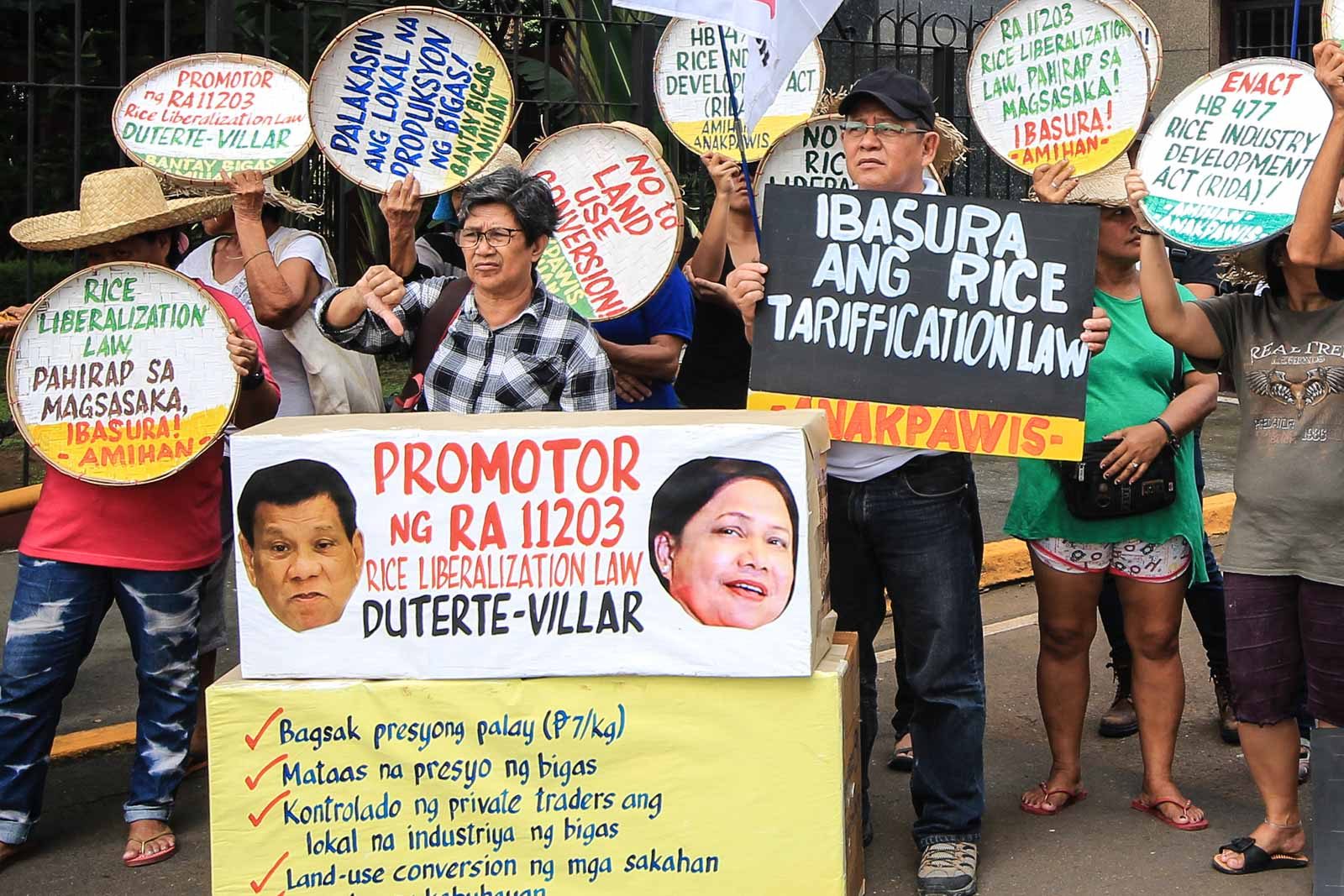SUMMARY
This is AI generated summarization, which may have errors. For context, always refer to the full article.

MANILA, Philippines – Setting a floor price or a limit to how much farmgate prices of palay can go down would defeat the purpose of the rice tariffication law, an official of the National Economic and Development Authority (NEDA) said on Tuesday, September 3.
“The rice tariffication law is a 6-month-old law. It’s still too early and I hope we will not go into that direction,” Socioeconomic Planning Assistant Secretary Mercedita Sombilla said on the sidelines of the hearing on the matter.
Sombilla said having a floor price would be contrary to the spirit of the law, which lets market forces drive prices to push down inflation. (READ: What’s inside the IRR of the rice tariffication law?)
The rice tariffication law took out import limits and placed higher tariffs instead, leading to a price drop for rice. However, local farmers are having a hard time competing with the cheap imports.
Farmers’ groups previously appealed to the government to set a limit to rice prices, as farmgate prices in some areas are reportedly as low as P7 per kilo. The average production cost in the country is at P12 per kilo, while some rice-producing regions can produce at P8 per kilo.
“Where are these areas? I want to know so that the National Food Authority and the government can step in and buy it ourselves,” Sombilla said.
The groups said there are farmers in parts of Nueva Ecija and Bataan who sell palay for just P7 to P8 per kilo just to get some cash.
Data from the Philippine Statistics Authority showed that farmgate prices average around P17 to P18 per kilo, much higher than what some farmers claimed.
Senate committee on agriculture chairperson Cynthia Villar said that while she recognizes the concerns of farmers, the drop in buying prices may just be “birthing pains” associated with the law.
For his part, Senator Francis Pangilinan said that the relationship between middlemen, traders, and farmers should be fixed.
“We need to stop the unjust and exploitative transactions between the middlemen and the farmers,” Pangilinan said.
The law also does not include unconditional cash transfers, but provides zero-interest loans for farmers instead.
Sombilla said the government’s economic team is doing away with giving cash and taking a different approach. The law allots funds to reduce the production cost of farmers by investing in farm mechanization and better seeds. – Rappler.com
Add a comment
How does this make you feel?
There are no comments yet. Add your comment to start the conversation.